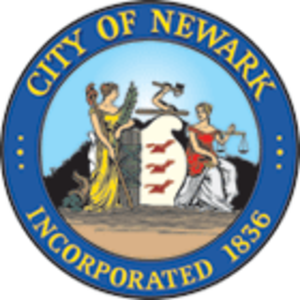The ideal proposed project incorporates elements of all three of the grant focus areas listed below.
Growing & Urban Agriculture
This funding category helps community-based growers, urban farmers and gardeners in Newark to 1) expand or significantly improve their production of fresh, healthy food and 2) make it available to families experiencing food insecurity, either directly or through partner relationships with pantries and other free or low-cost distribution entities. In doing so, we hope that local growers will both help to combat hunger in our communities while also improving the local skills base around sustainable urban agriculture beyond the one-time influx of grant funding.
Activities can include, but are not limited to the following:
- Expanding growing operations at existing community gardens and urban farms
- Installation of school-based gardens, and healthy food connection to school-based learning
- Garden-based, grower-led education around healthy eating and lifestyles
- Rainwater harvesting and collection, installation of water lines, irrigation systems, etc.
- On-site storage, washing/preparation equipment, including refrigeration units, where feasible
Regular Community Distribution
This funding category helps ensures regular community access to free, fresh produce. The applicants will ensure that their nonprofit, school or co-op is engaged in the regular (weekly, biweekly, monthly, etc.) distribution that eliminates barriers (e.g., lack of access, lack of transportation options, limited mobility, lack of awareness of healthy foods).
Applicants must show their entity already engages and or proposed to launch efforts in activities such as (not limited to) the following:
- Community-led Free Food Fridges
- Program that link pantries to local growers, and vice versa
- Establishing recurring/consistent distribution strategy and schedule
- Farmer’s Market operations & accessibility improvements (including, technology solutions to ensure SNAP/WIC and incentive programs are available payment options)
- Fresh food incentive programs at corner stores and other food retailers in food deserts
- Establishing neighborhood-based low-cost fruit & vegetable carts
- Bicycle-based or Food Truck Fresh Food Delivery Services
- Dedicated transportation and/or delivery services for community members with limited mobility, access and functional needs, or otherwise home-bound (including those required to quarantine due to COVID-19 exposure)
- Installation and/or expansion of cold storage at food pantries to expand fresh food options
- Establishment or expansion of cooperative markets, or other food retail services that provide low-cost or subsidized fresh food access to low-income individuals and households
Training & Community Education
This grant category seeks to leverage and multiply the knowledge base and expertise of Newark’s rich network of urban growers and sustainable food experts. It is the intention of the City of Newark to support efforts that link growers with other sectors of the community, such as schools and social services nonprofits, in order to raise awareness around urban farming and encourage families to become urban gardeners. Activities can include, but are not limited to the following:
- Providing workshops and training activities around local farming
- Exposing community to culturally-appropriate healthy cuisine and food preparation
- Engaging in environmentally-friendly agriculture practices (i.e., soil and water conservation, micro composting, etc.)
- Workshops and activities focused on building a culture of health, esp. as it relates to using nutrition to improve disparity in chronic disease and other community health outcomes
- Customized support for school-based gardens to connect school programming with urban farms, community gardens and food co-ops.
The Nourishing Newark Community Grants Program seeks to provide funding for a variety of programs and initiatives, ranging for hyper-local free food programs to city-wide urban agriculture growing and distribution efforts. We anticipate funding a total of 12-20 projects, reflecting a mix of one-year and two-year projects and programs, including 1-2 awardees seeking up to $350,000 per year, 3-5 projects seeking up to $150,000 in annual funding, and several smaller projects with annual program costs ranging from $10,000 to $50,000.

